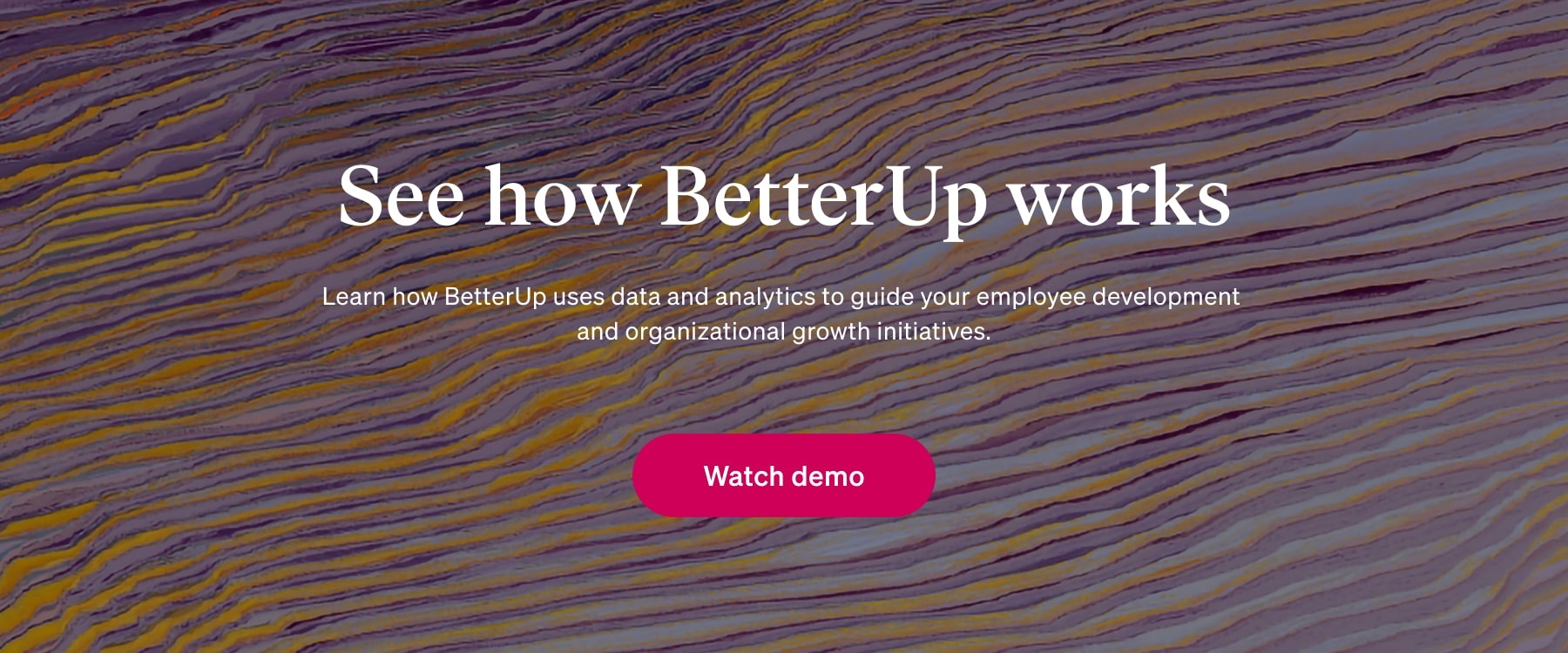-
For Business
For Business
Products
LeadBuild leaders that accelerate team performance and engagement.
Care™Drive productivity through sustained well-being and mental health for all employees with BetterUp Care™.
Solutions
Sales PerformanceTransform your business, starting with your sales leaders.
Diversity & InclusionFoster a culture of inclusion and belonging.
Customers
Case StudiesSee how innovative companies use BetterUp to build a thriving workforce.
- For Individuals
-
Resources
Resources
LibraryBest practices, research, and tools to fuel individual and business growth.
EventsView on-demand BetterUp events and learn about upcoming live discussions.
BlogThe latest insights and ideas for building a high-performing workplace.
ResearchInnovative research featured in peer-reviewed journals, press, and more.
- About

We asked people, “How much do you think the pandemic has changed you, as a person, for better or worse?” and people say generally, COVID-19 has changed them for the better.
It’s been quite a year, but we're finally starting to see the light at the end of the COVID-19 tunnel. Curfew restrictions are easing up; we can eat out at restaurants again and even spend time with friends and family indoors without a mask—the country's entering a new normal.
As we return to some resemblance of life as usual, there's a slew of unanswered questions about our experience dealing with this crisis. One of the most intriguing: How did we change as people?
For example, for many, the idea of “seize the day” now carries more weight, values have come into focus, and appreciation for things previously taken for granted has been elevated.
To understand the forward-looking impact of COVID-19 on people more clearly, two scientists from BetterUp Labs, Evan Carr, PhD, and Andrew Reece, PhD, took a look at the responses of 930 people who were surveyed in March 2021 about their experiences over the past year.
How Covid changed us: What the data says
People were asked, “How much do you think the pandemic has changed you, as a person, for better or worse?”
We saw relatively even responses, balanced across a feeling of overall negative impact to overall positive impact. Given how different the pandemic experience has looked for those across socioeconomic statuses, industry, gender, parental status, and racial and ethnic groups, it makes sense we all have our own realities and experiences spanning the spectrum.
Still, the average was slightly positive, indicating that people think COVID-19 generally has changed them for the better, at least at an aggregate level.
-1.jpeg?width=1000&height=500&name=BLOG%20HEADER%20-%201000x500px%20v1%20(1)-1.jpeg)
Participants responded with a slider that went from -10 (made me much worse) through 0 (no change) to +10 (made me much better) in 1-unit increments:
Those who came out of the pandemic feeling on average, that the pandemic has created changes for the better cited reasons like:
- Family
- People
- Future
- Hobbies
- Realization
This indicates that they perhaps see benefits to their life from the flexibility caused by remote working and the heightened awareness of their values.
But the reality's more nuanced. Even though the average rating was slightly positive, many people are languishing in the aftermath of COVID-19. People who still experience negative remnants of last year's struggle cited things like:
- Mental health
- Change
- Anxiety
- Fear
- Physical health
This suggests that COVID-19 increased uncertainty in (perhaps already) stressful life situations for many.
How mental fitness influenced Covid’s impact

One explanation for these data lies in differential demographic impact of the virus itself leading to dominating, negative or positive manifestations in one’s life. But psychological explanations are surely also at play from person to person such as mindset, positive reframing, and skills in resilience. For people who underwent trauma through COVID-19—whether that's losing a loved one or dealing with financial insecurity—finding the positive impact from the pandemic is easier said than done.
However, we know that with support, even those in the languishing middle have the capacity to see possibilities for a better future among the chaos. Psychologist Shilagh Mirgain says something new and better can come from crisis experiences, a concept known as the Phoenix Phenomenon. When we learn to cope with stress positively, we can live longer, experience greater satisfaction in our lives, and be more engaged with the world around us.
In an ideal world, challenges guide us toward growth opportunities, so we're able to handle obstacles better moving forward. When we're stuck and can't see the positives in life, we can't live life in full and realize our maximum potential.
Although no one could control the pandemic, challenging times can create something positive—even for people who feel that COVID-19 changed them for the worse, perhaps in terms of mental or physical health. What has it taught us about our values? About the importance of the things we lost through this time? Of the changes we want to make in our lives?
It's evident that everyone's pandemic reality is different and support in processing it and moving forward should be as well. To this end, at BetterUp, we've witnessed the power of personalized coaching firsthand. Everyone deserves the opportunity to reflect on this traumatic time in history and do personal sense-making around its impact going forward. Everyone deserves a chance to feel better and stronger as a person. And everyone deserves the support to get there.
Erin Eatough, PhD
Sr. Insights Manager





